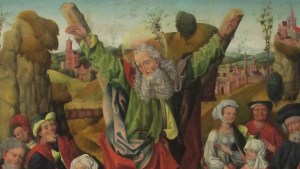Lenten Campaign 2025
This content is free of charge, as are all our articles.
Support us with a donation that is tax-deductible and enable us to continue to reach millions of readers.
Many of us are familiar with the names of the 12 apostles, but often that is all we know.
Part of the reason we do not know much about the 12 apostles is because the New Testament gives us very few clues.
Yet, between the Bible and oral tradition, we do know some details about the apostles and their ministry after Jesus’ ascension into Heaven.
St. Andrew the Apostle
The Roman Martyrology provides the following summary of St. Andrews life:
Saint Andrew, apostle: born at Bethsaida, brother of Simon Peter and a fisherman with him, he was the first of the disciples of John the Baptist to be called by the Lord Jesus near Jordan, followed him and led his brother to him too. After Pentecost he is said to have preached the gospel in the region of Achaia in Greece and underwent crucifixion at Patras. The Church of Constantinople venerates him as her distinguished patron.
The Gospel of John claims that St. Andrew was among Jesus’ first disciples and that he is the one who brought his brother Peter to Jesus:
The next day again John was standing with two of his disciples; and he looked at Jesus as he walked, and said, “Behold, the Lamb of God!” The two disciples heard him say this, and they followed Jesus. Jesus turned, and saw them following, and said to them, “What do you seek?” And they said to him, “Rabbi” (which means Teacher), “where are you staying?” He said to them, “Come and see.”
They came and saw where he was staying; and they stayed with him that day, for it was about the tenth hour. One of the two who heard John speak, and followed him, was Andrew, Simon Peter’s brother.He first found his brother Simon, and said to him, “We have found the Messiah” (which means Christ). He brought him to Jesus. Jesus looked at him, and said, “So you are Simon the son of John? You shall be called Cephas” (which means Peter).
John 1:35-42
St. Andrew is most often depicted with a cross shaped like an X, as tradition claims he was crucified on a cross of that shape.



